What does the word ‘probiotics’ mean? It seems to be the new buzzword? Everyone seems to be talking about probiotics and gut health. For the last 18 months or so I have been reading up a lot on the relationship between the gut and the immune system and thereby the implications for autoimmune diseases. I have been following a strict paleo diet(autoimmune protocol version) . Many of my friends and family have asked me about the relationship between diet and disease. Some of them seemed confused that our gut would have so much of an impact on our health and wanted to know why ‘probiotics’ were important.
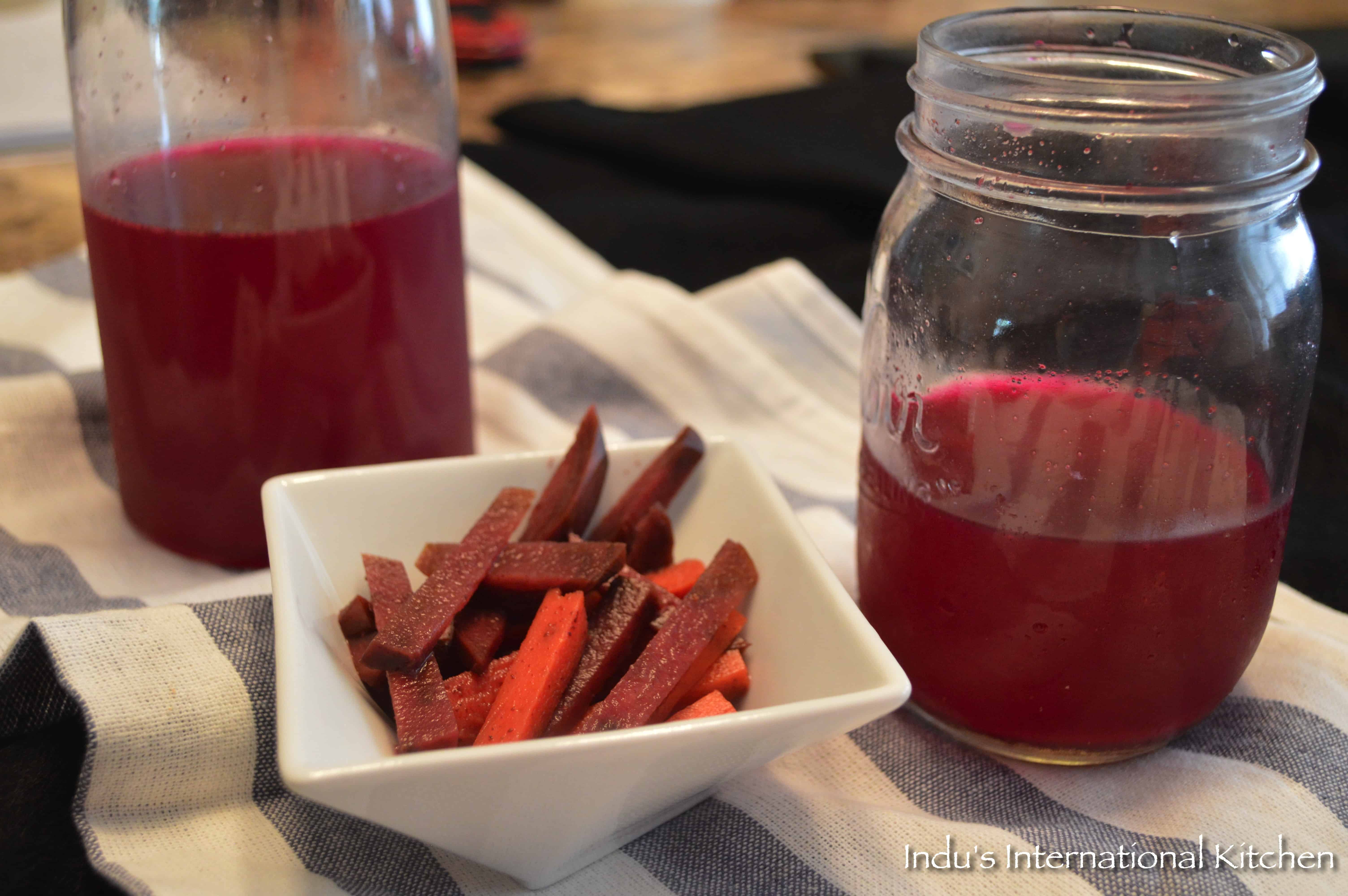 So I thought of writing up this post explaining the basics for my readers.
So I thought of writing up this post explaining the basics for my readers.
- Significance of gut health on our overall health: As I was reading up about the impact of diets on disease, one of the facts that really helped me understand this relationship was that “80% of our immune system resides in our digestive tract”! Now, once you begin to appreciate this, it all begins to make sense doesn’t it? yeah, so if immune system is located in the gut, then what you eat has an impact on the immune system! Ta Da! Many health issues, such as thyroid imbalances, chronic fatigue, joint pain, psoriasis, autism and many other conditions originate in the gut.
- Good bacteria vs bad bacteria: The secret to restoring your digestive health is all about balancing out the good and bad bacteria in your gut. Probiotics are bacteria that line your digestive tract and support your body’s ability to absorb nutrients and fight infection. There are actually 10 times more probiotics in your gut then cells in your body! If you don’t have enough probiotics, the side effects can include digestive disorders, skin issues, candida, autoimmune disease, and frequent colds and flus.
- Probiotic ‘Killers’ or Eroders: In the olden days, our ancestors used plenty of probiotics in their diets from eating fresh foods from good soil and by fermenting our foods to keep them from spoiling. However, because of refrigeration and dangerous agricultural practices like soaking our foods with chlorine, our food contains little to no probiotics today, and most foods actually contain dangerous antibiotics that kill off the good bacteria in our bodies. Following are some ‘probiotic killers’ in our environment today: prescription antibiotics, Non Steroidal Anti inflammatory medications (NSAIDs/Pain killers), sugar, tap water , GMO foods, Grains, emotional stress etc.
Thus adding probiotics to our diet can help to provide us with a
- Stronger immune system
- Improved digestion
- Increased energy from production of vitamin B12
- Healthier skin, since probiotics naturally treat eczema and psoriasis
- Reduced cold and flu
- Healing from leaky gut syndrome and thereby all autoimmune disorders
- Relief from Gastro Esophageal Reflux Disease (GERD) since they prevent the growth of H.pylori which is implicated in many GERD cases
What are some natural probiotics?
Sour foods and fermented foods like apple cider vinegar, yoghurt (dairy free coconut yoghurt is best), kefir, sauerkraut (fermented cabbage), Kimchi (fermented vegetables), beet kvass (fermented beets) are all great sources of probiotics.
What are some other sources of probiotics?
Nowadays you can buy probiotic capsules from the pharmacy and GNC stores that contain the good bacteria inside a capsule. Make sure you use a probiotic supplement that has a mix of strains from the two main genus lactobacillus and bifidobacterium. Pick a brand that has at least five billion CFU (colony forming units) of bacteria. Otherwise it is not good enough. And always store them in a cool place always.
(references: https://draxe.com/probiotics-benefits-foods-supplements/
http://www.webmd.com/digestive-disorders/features/what-are-probiotics#1
http://dailyburn.com/life/health/choose-best-probiotic/ https://www.optibacprobiotics.co.uk/professionals/faq/could-probiotics-help-acid-reflux)
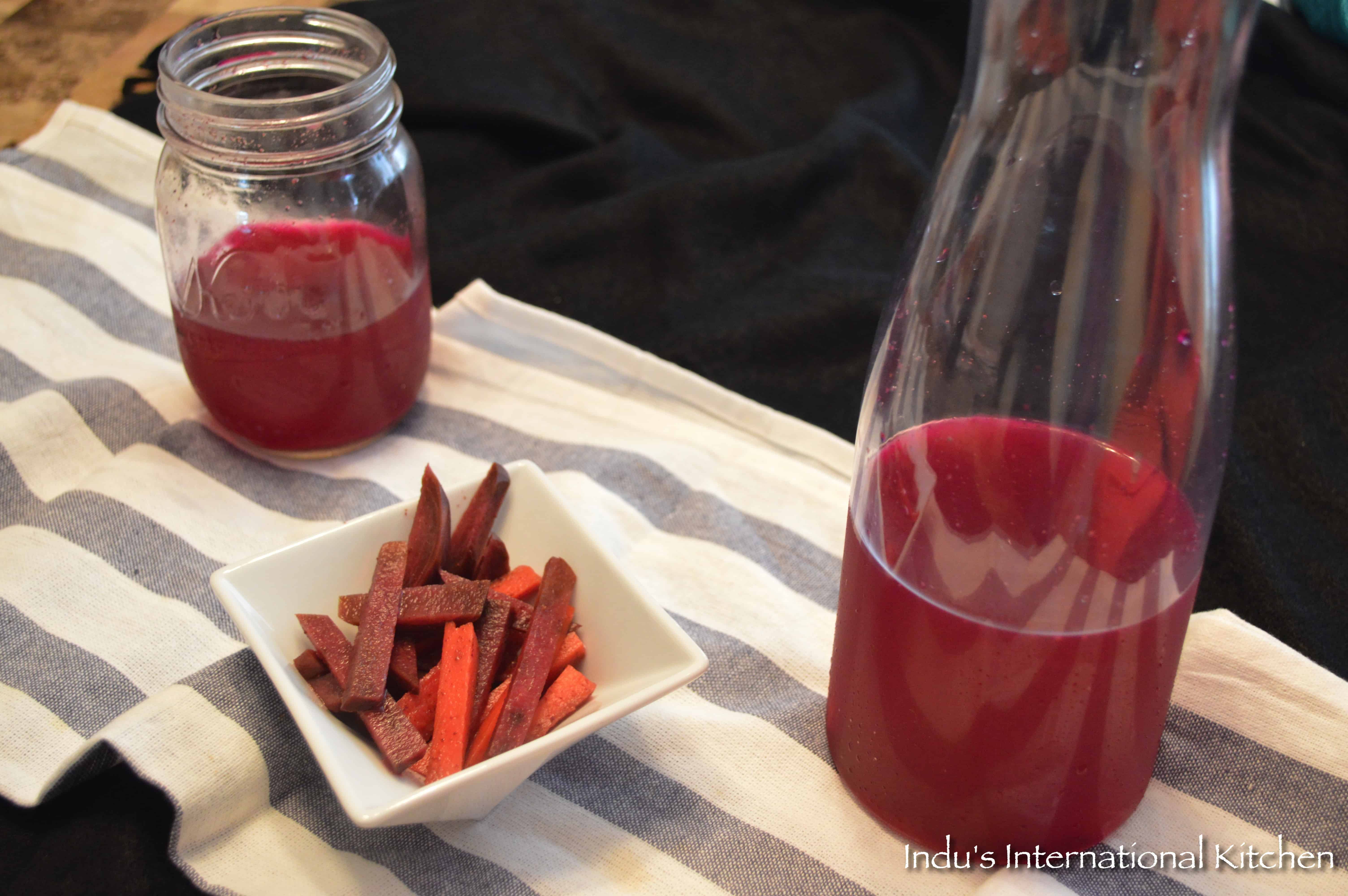 I recently came across this lovely recipe for an Indian probiotic drink called as Beet kanji. This drink has been traditionally made in Northern India and I am so glad that I got to know about this drink from my friend Monika. I have been making it regularly now. It’s very easy to make.
I recently came across this lovely recipe for an Indian probiotic drink called as Beet kanji. This drink has been traditionally made in Northern India and I am so glad that I got to know about this drink from my friend Monika. I have been making it regularly now. It’s very easy to make.
- Black salt which is called as Kala Namak in India is what’s used in this recipe and it gives a distinct pungent flavor to this drink (which I love!) The Kala Namak or Black Salt, is a specialty in the Pakistan / Indian cuisine. It is pinkish grey rather than black and has a very distinctive sulfurous mineral taste similar to hard-boiled eggs. This Black Salt is used in Pakistan / Indian cuisine as a condiment and is added to chaats, chutneys, raitas and many other savory Indian snacks. It is known to have health benefits and helps relieve heartburn and gas.
- Ground mustard seeds are also added to Kanji but if you are on elimination phase of AIP, you can just exclude it.
- Sometimes, I also add some probiotic to the recipe as a starter to aid the fermentation process. But its not needed. The fermentation can naturally start on its own after a couple days. The longer you keep it outside, the stronger the taste will be. I like to ferment it for 4-5 days – the room temperature in our home is generally around 65-70 F.
The first time I made it , it came out too strong and so after a couple variations, I have the process nailed down – adding just the right amount of mustard and keeping it for fermenting for the right amount of time. I love having this drink chilled! At our dinner gatherings at home, I sport a glass of bright red kanji while others have their alcoholic drinks 🙂 Oh, and you can use the fermented vegetables to add to your salads!
You can watch a video of how I make this drink! See below!
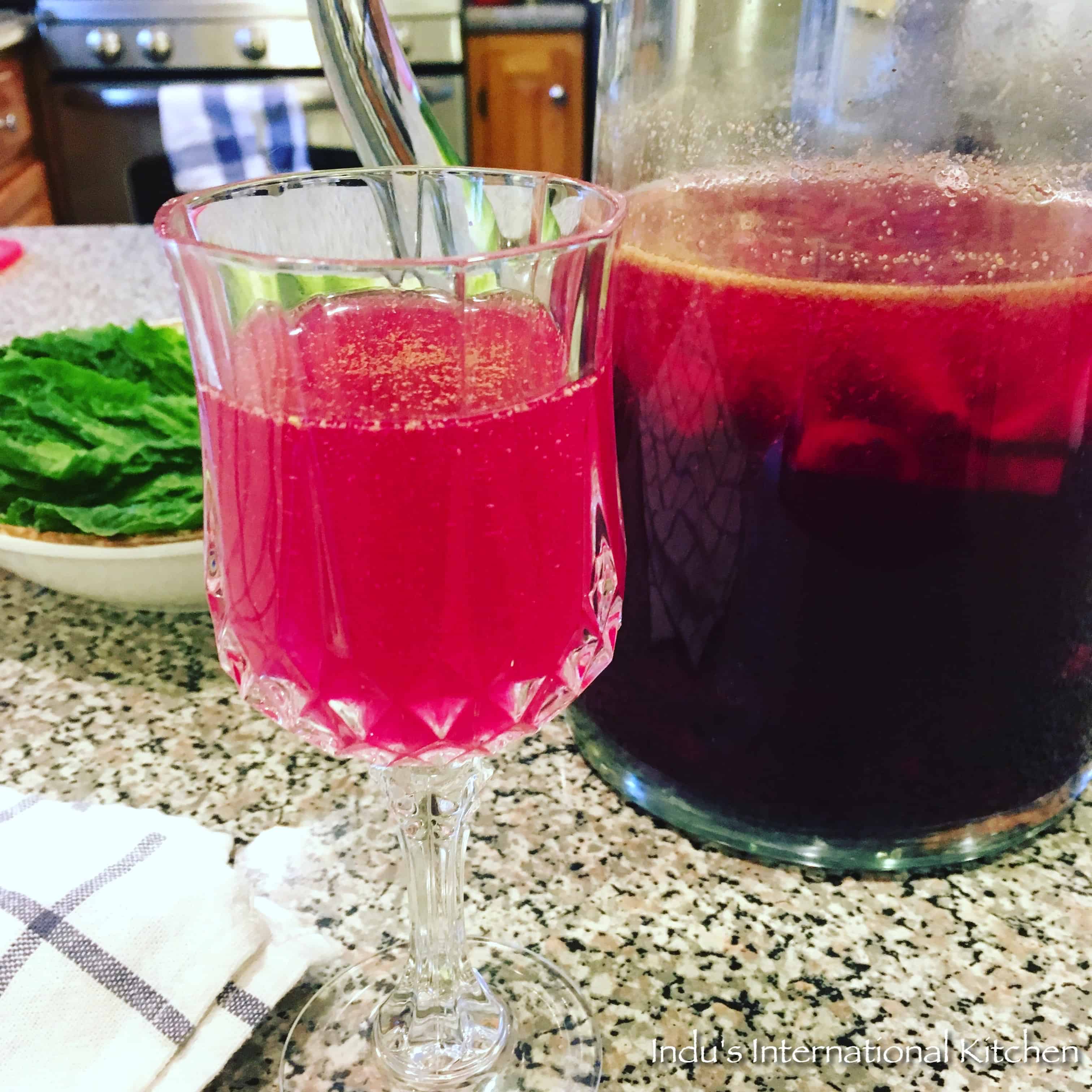
- 1 large organic beet, peeled and cut into thin, long slices
- 1 large organic carrot, scraped and cut into thin, long slices
- 6 cups or 1.5 quarts or 1.5 liters filtered water
- 2 tsp powdered mustard seeds (coarsely powdered is ok)
- 2 tsp rock salt
- 2 probiotic capsules (optional)
- Take a large glass jar and add the vegetables and the mustard, contents of the probiotic capsules(if adding) and salt. Pour the filtered water to cover all the vegetables completely plus leave about 2 inches of water above. Cover the jar with a dish cloth and place a lid loosely on top and keep it aside on the kitchen counter for 4-5 days or until you see bubbles on top. Taste the liquid to see if you get a strong fermented taste and that's when it is done.
- Transfer the drink and the fermented vegetables into separate containers or jars and store in the fridge. You can store kanji in the fridge for up to 4-6 weeks.

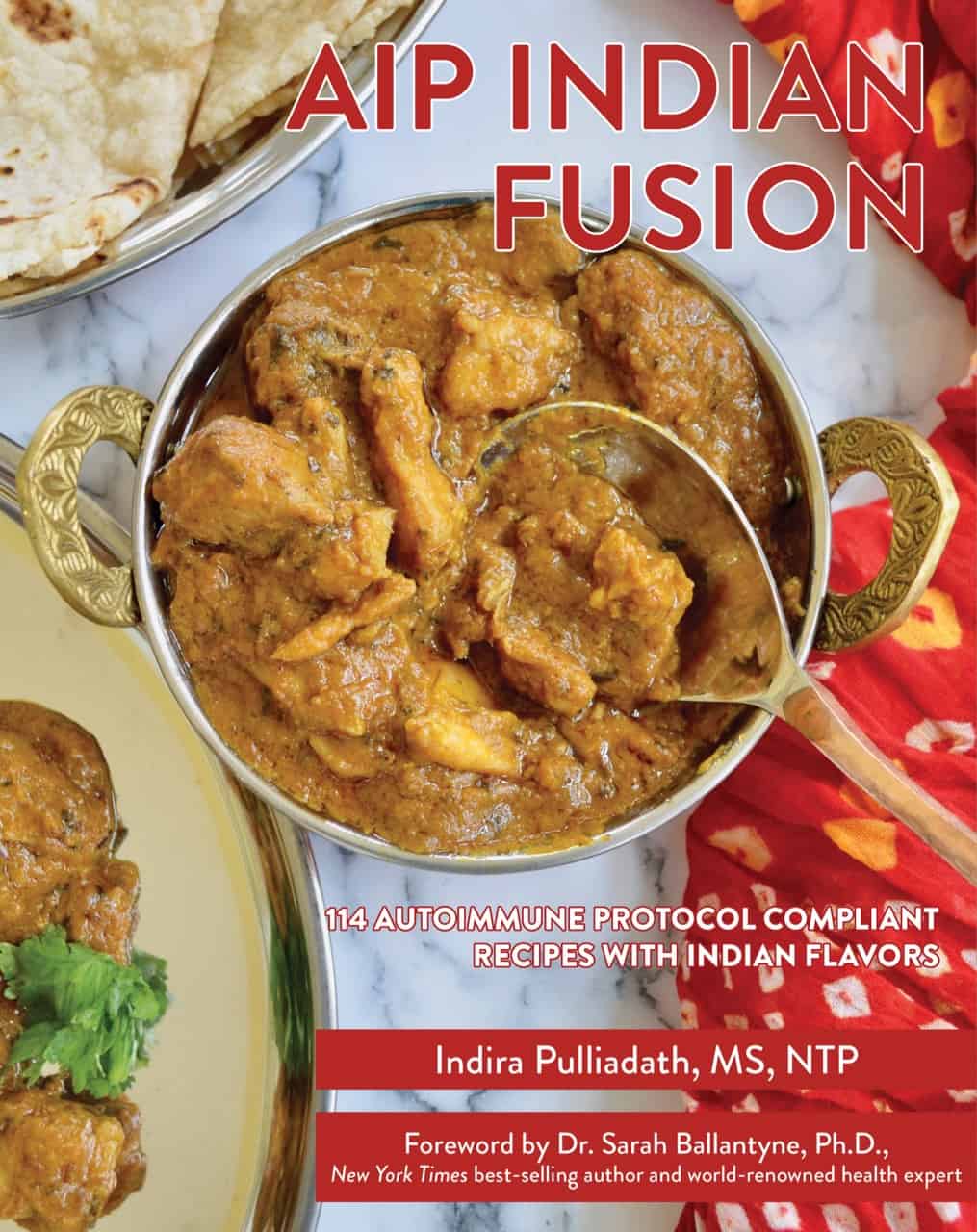
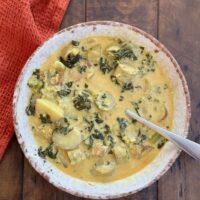
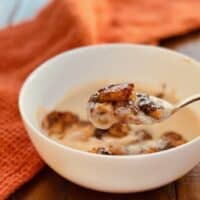
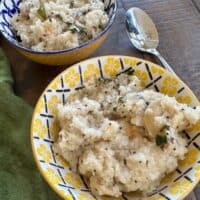

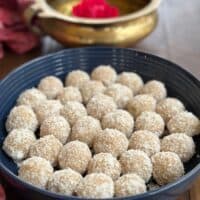
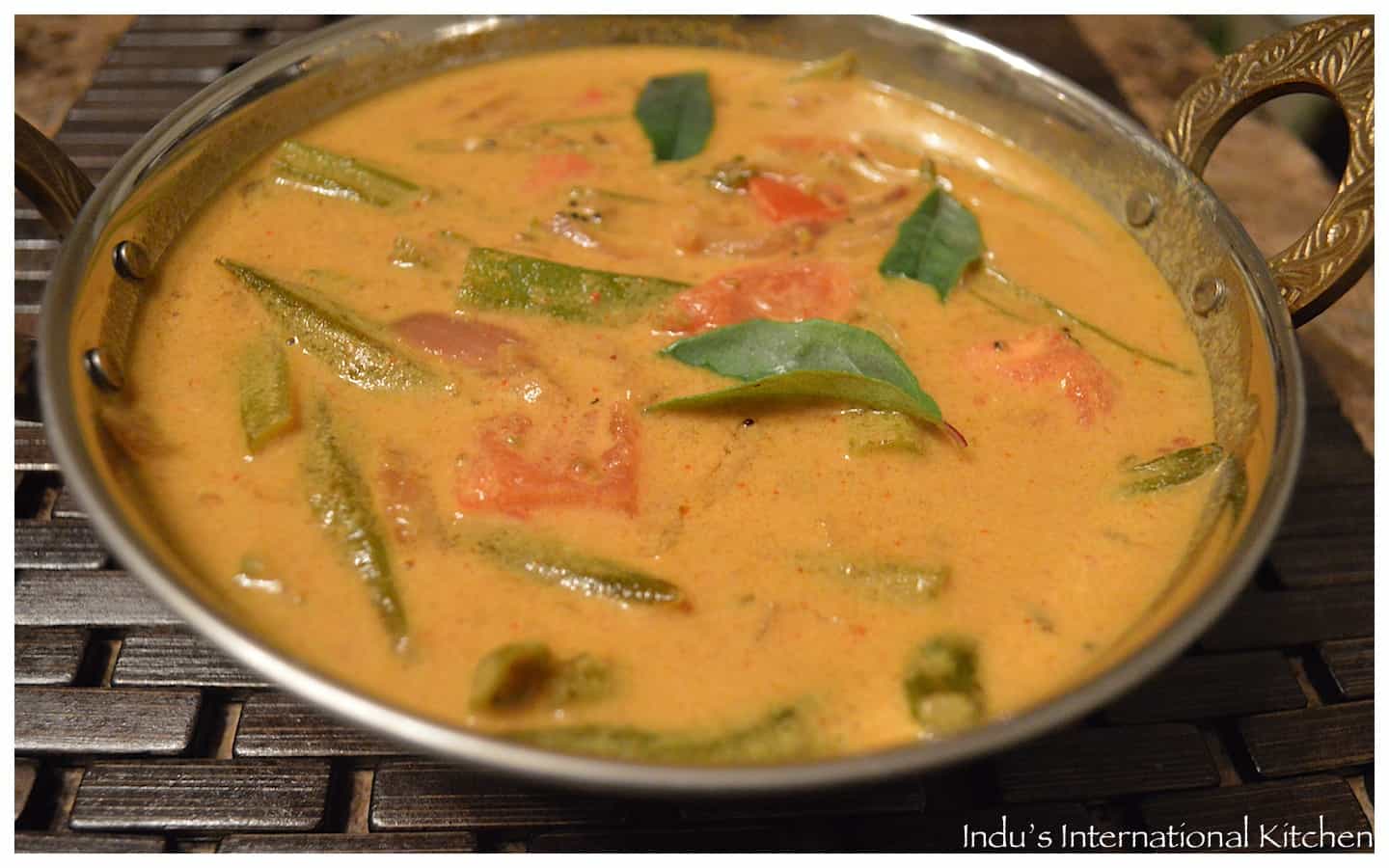
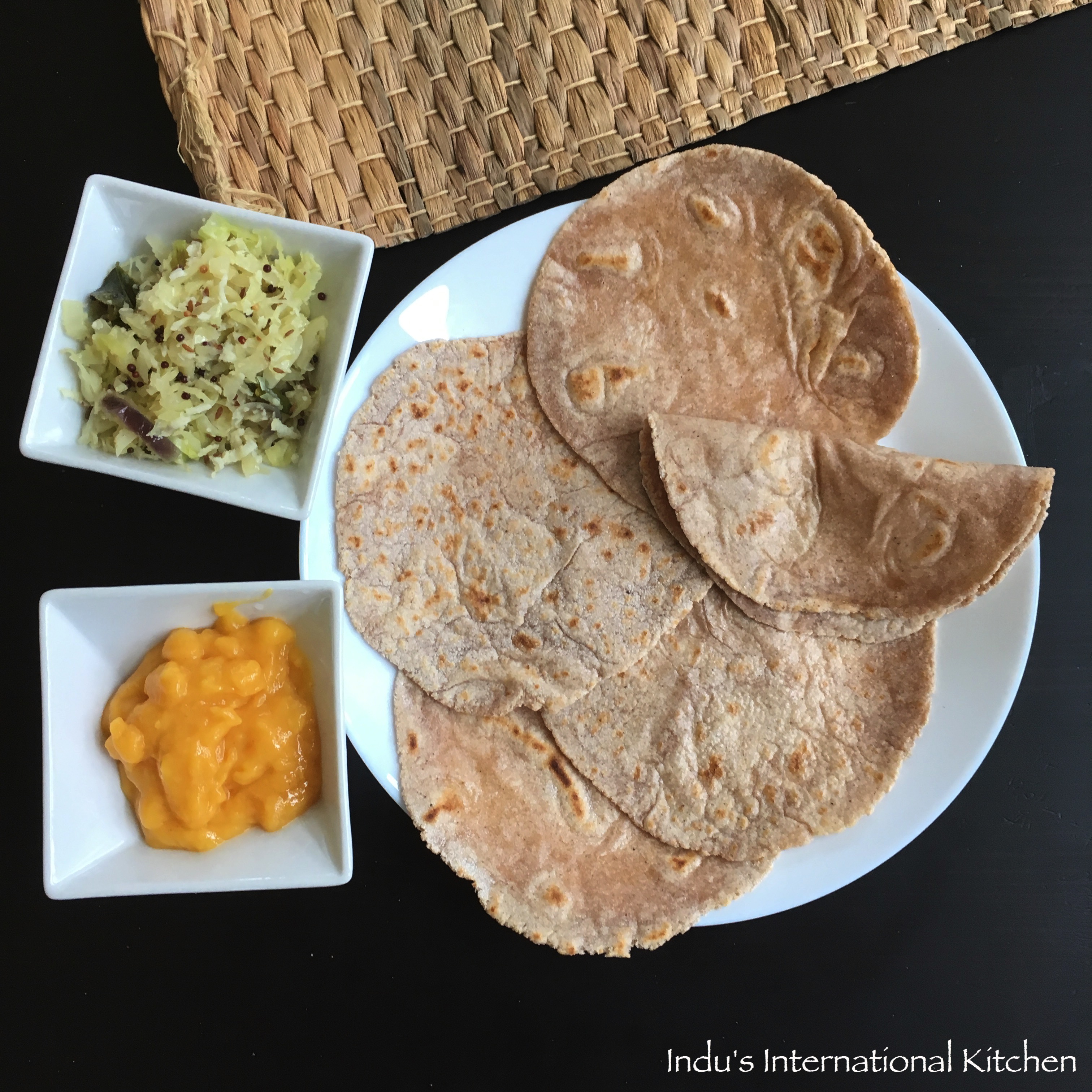
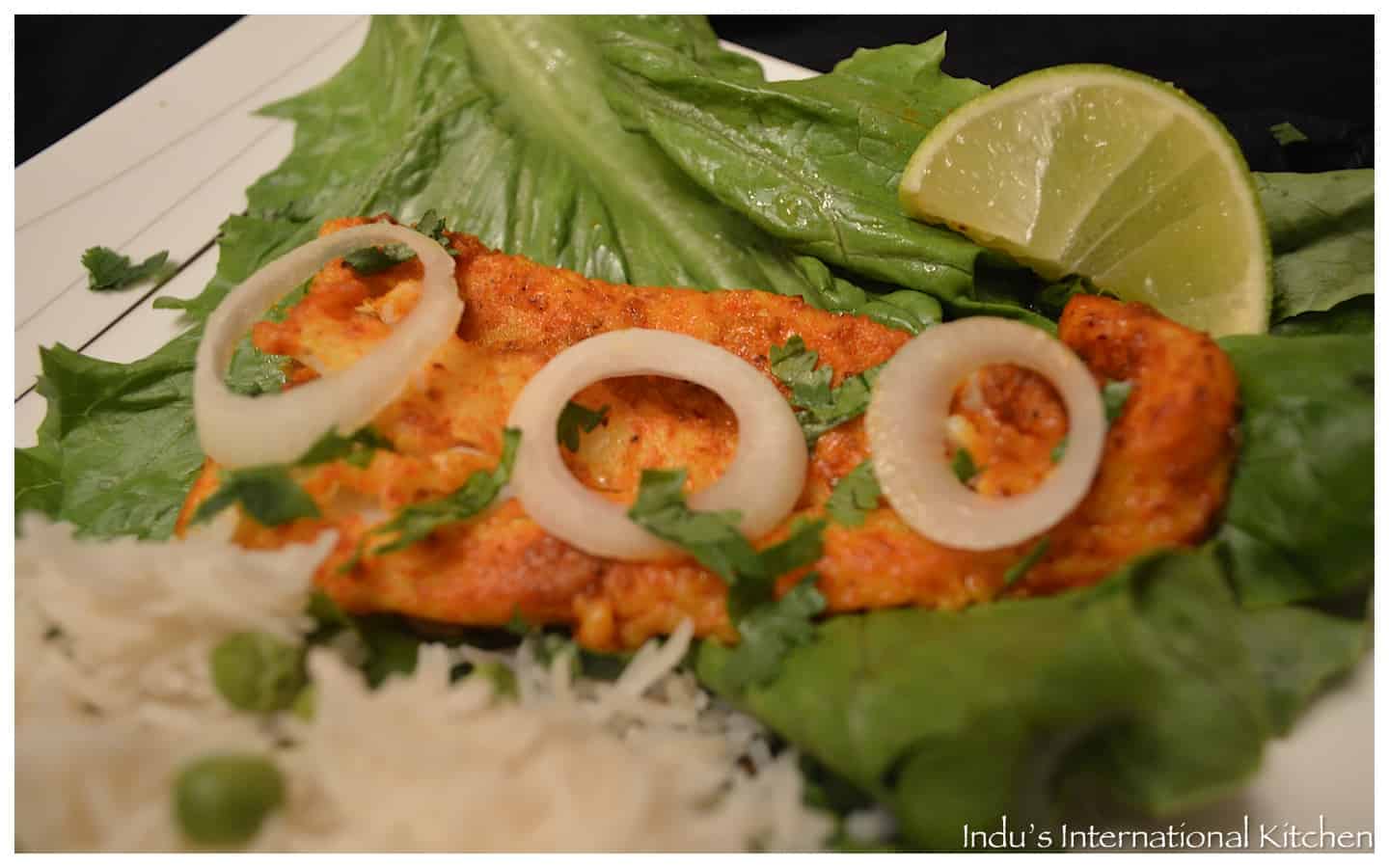
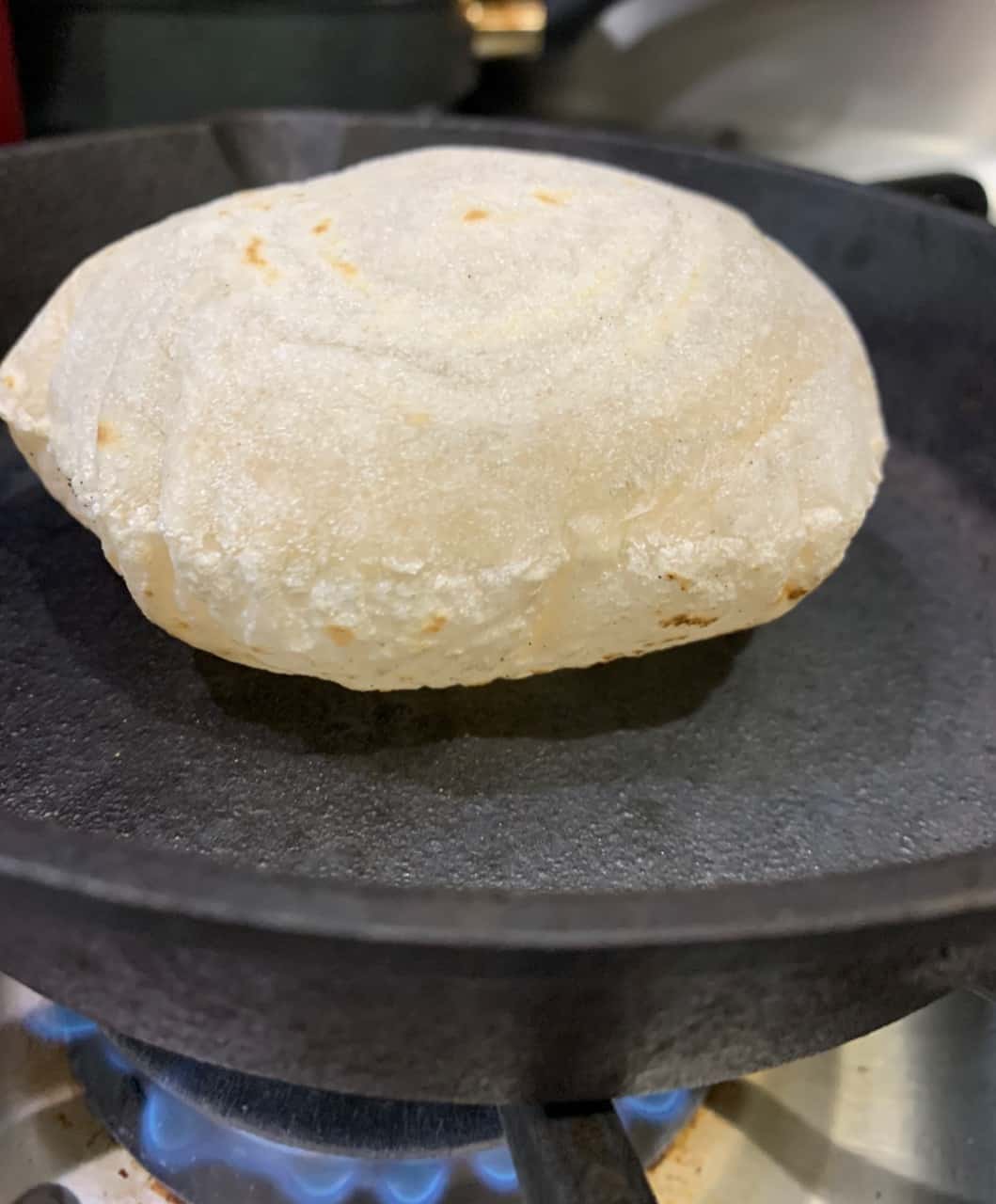
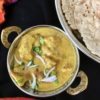
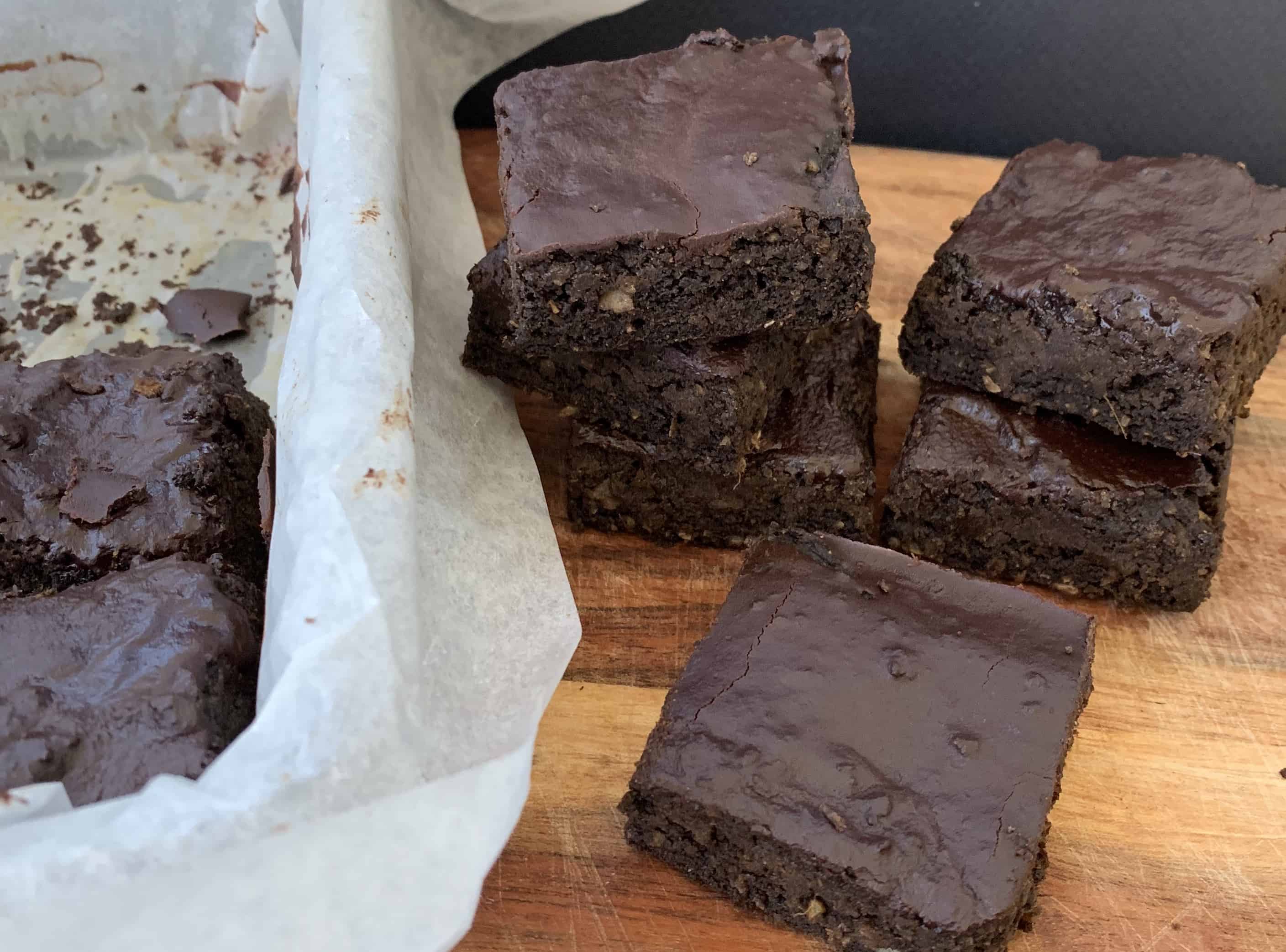
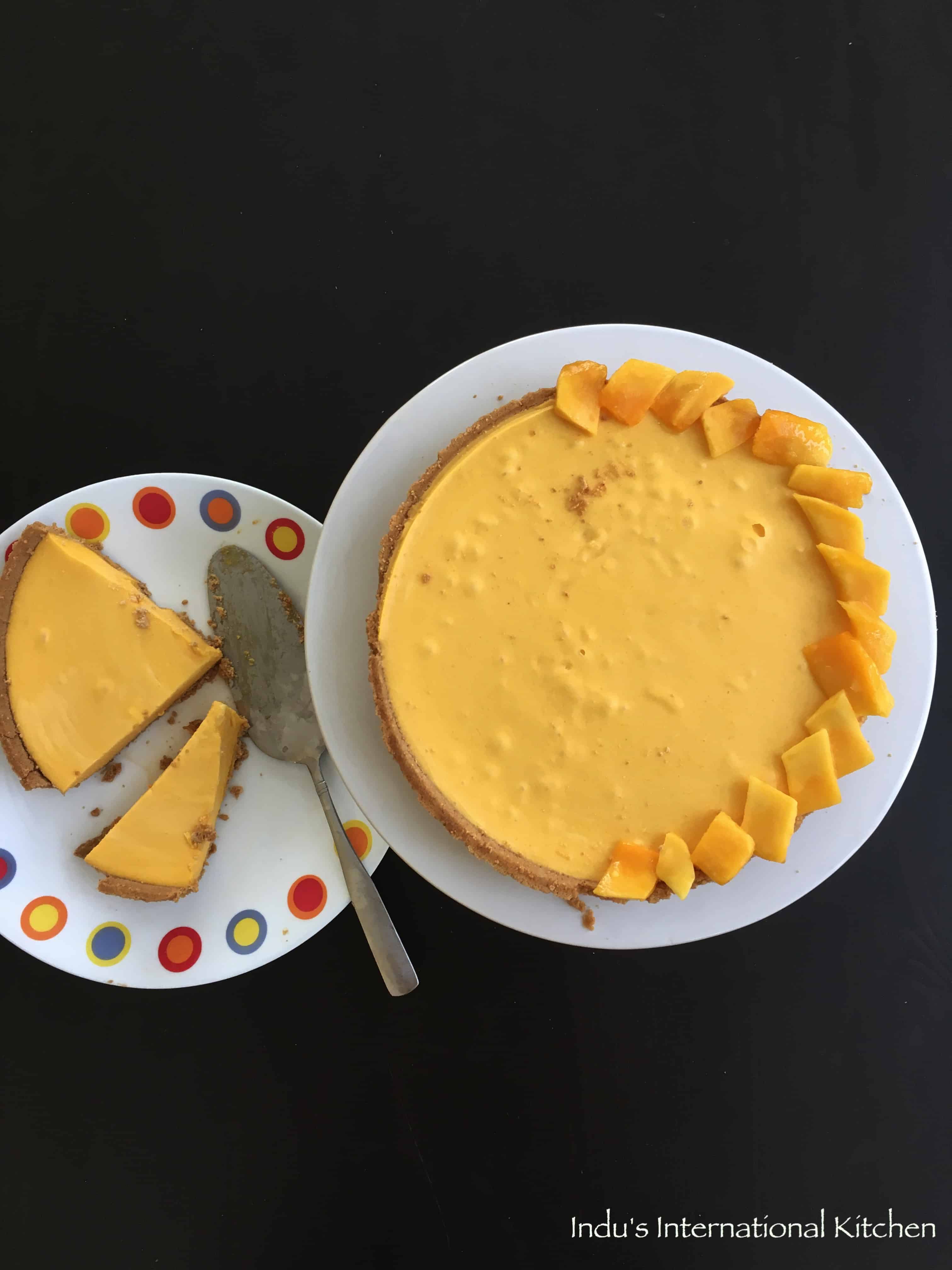
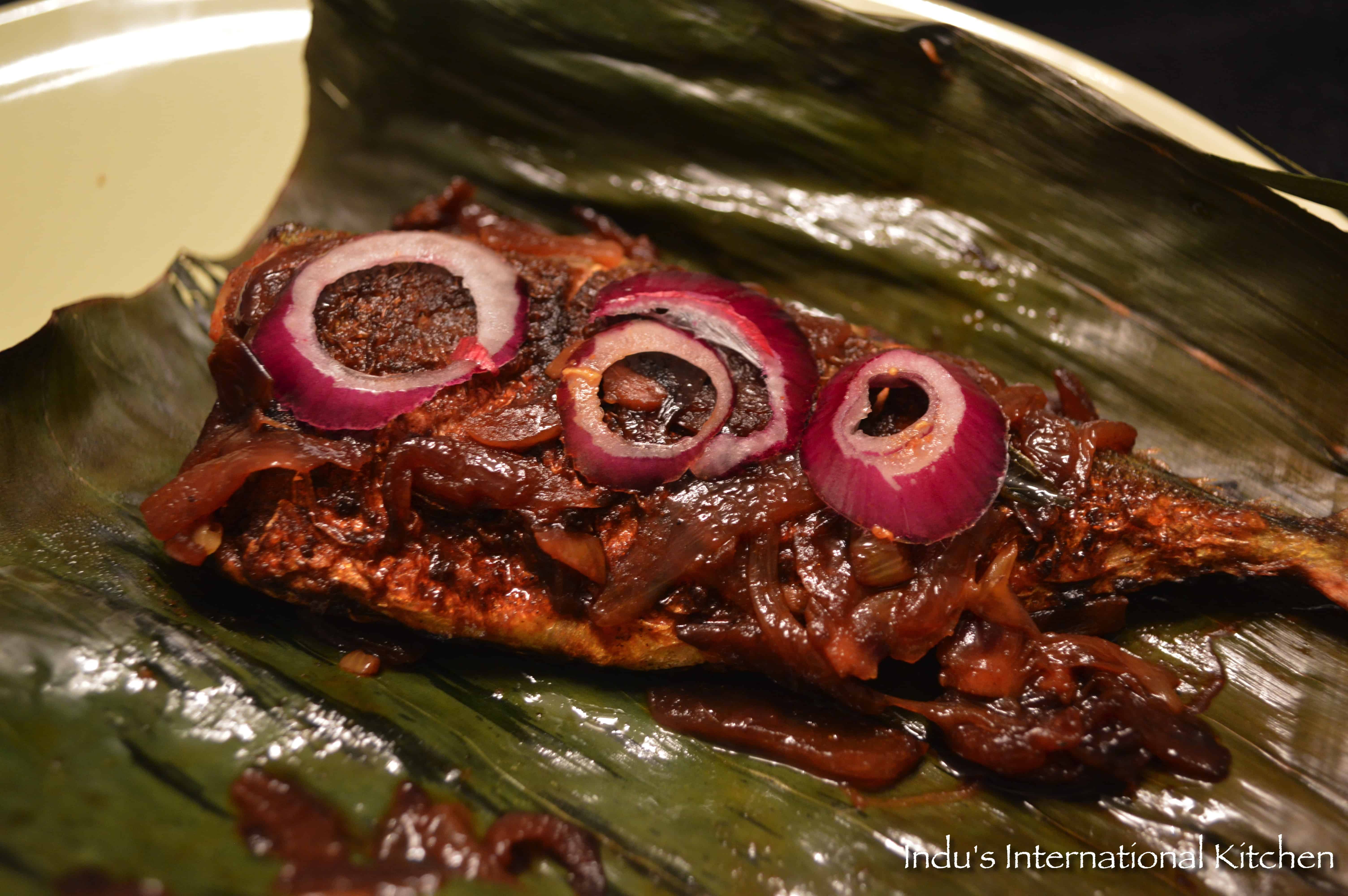
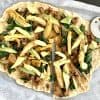
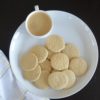
Thank you for sharing,,,,can you add black salt to any other probiotics apart from beets and carrots?
I am guessing yes however I have not tried it!
Is it ok to use plain tap water which is filtered or do I have to boil and then cool the water
If you are filtering the tap water yourself using a water filter, then yes it’s ok to use that.
Hi
Can we eat the beetroot ? Or only the juice .
Thanks in advance
yes absolutely you can eat the beets too! I love to add it to my salads or just put on the side of a meal.
Hi,
This very informative blog about Indian home made probiotic drink…..my Grand Maa always used to make kanji ( usually carrot) n make it tastier used Bada ( kanji Bada)
Have you made it without mustard seeds?
(AIP diet)
Is there an alternative to these?
Yes you can make it without mustard seeds just using the black salt. It will still ferment.
should we be drinking with food/ empty stomach/how much and how many times a day?
Thank you for your reply in advance
hi Archana you can have this drink once a day or a few times a week just before your meals. It helps to stimulate the digestive juices too. If you forget to take before meals, then you can take a couple hours after your meal too. Hope this helps.
You did not say how much is okay to drink in your reply. I think in the video you said two tablespoons is this correct?
You can start with 1-2 tablespoons and then increase slowly to up to 1/2 a cup daily.
Hi,
This very informative blog about Indian home made probiotic drink…..my Grand Maa always used to make kanji ( usually carrot) n make it tastier used Bada ( kanji Bada)
Could drinking kanji made with beet and carrots cause itching allover the body…I had added small mustard seeds(Rai)?
Hi there! hmm…interesting. My first thoughts are that if it is not severe then this kind of itching may be related to detoxification. Meaning that its nothing to worry about. I saw this article on the internet regarding some possible side effects of probiotics and one of them is skin rash or itching : https://1md.org/article/probiotics-reduce-side-effects-1md. Hope it is not a severe reaction in which case I would recommend you stop taking this. Hope that is useful. take care!
Beautiful informative post. Thanks for the share Indhu.
thank you Sumith. I am glad you found it useful!